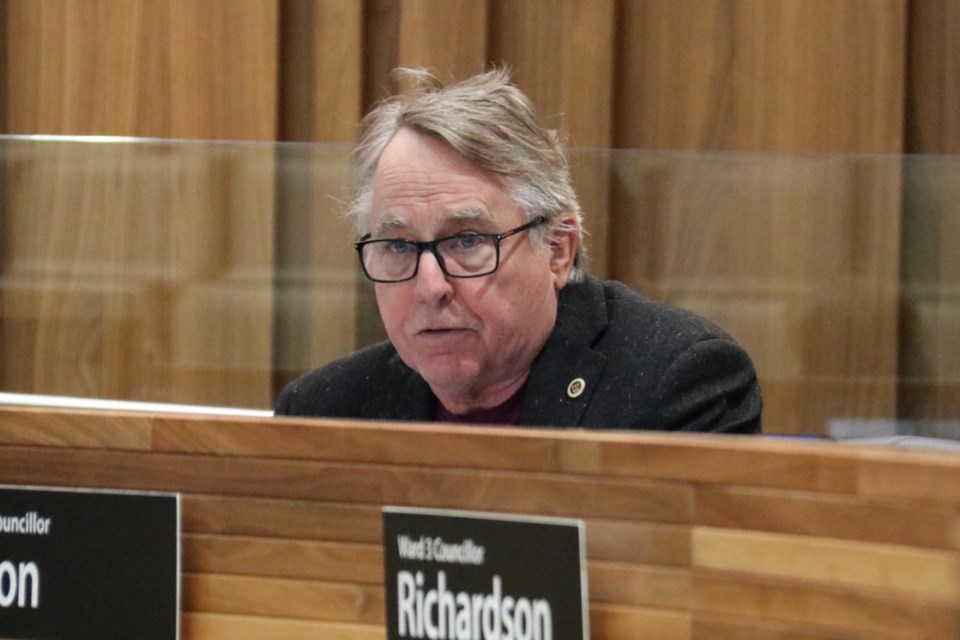The closure of Guelph’s Consumption and Treatment Services site is a form of social murder. That is, according to many delegates who shared their concerns during Wednesday’s special council meeting.
The province announced over the summer that 10 sites providing safe consumption, safe supply and needle exchange services would have to close by the end of this March.
In response, Coun. Phil Allt brought forward a motion to urge the province to “continue to permit the operation and funding of the Guelph consumption and treatment site beyond the proposed termination date in March 2025.”
Allt also implored council to encourage the province to maintain or expand funding for proposed HART hubs, not to prohibit supervised consumption sites, and to forward the resolution to the premier, the minister of finance, the health minister, the Association of Municipalities of Ontario and municipalities with an operating CTS or supervised consumption site.
“The reason I brought this forward is that I believe it’s very important for this council to reaffirm its support for safe injection sites,” he said, adding he believes closing the site would mean sending healthcare workers into battle “with only half the tools.”
“The problem is not going to go away. It will go underground.”
The first item passed with Mayor Cam Guthrie and Coun. Michele Richardson voting against; the second and fourth passed unanimously.
The request to the province to not prohibit CTS sites passed with councillors Christine Billings and Dominique O’Rourke joining Guthrie and Richardson in opposition.
During the meeting, Guelph resident Amelia Meister shared a story of her friend, Myles Cikvar, who died last month from suspected drug poisoning.
“This was a death that could have been prevented if he had had adequate access to a CTS site at the time of using,” she said.
“He wanted to get sober. He had gotten sober countless times, sometimes for a week, sometimes for a month. But without proper housing, mental health, and community support, it was nearly impossible to stick to.
“I don’t want anyone else to die because of the lack of access to safe supply,” she said.
Guelph Community Health Centre CEO Melissa Kwiatkowski and Guelph Wellington Drug Strategy manager Jean Hopkins both noted the decision to close CTS sites will have dire financial and health consequences.
“The ministry’s own analysis predicts more drug poisoning deaths, increased emergency room visits, a rise in public drug use, and more discarded drug supplies in our streets. This is not speculation. It is what happens when proven solutions are removed,” Kwiatkowski said.
Since the Guelph site opened, the site has hosted over 41,000 visits offering supervised, compassionate care. There have been nearly 1,000 referrals made to addiction treatment and primary care, and reversed 311 overdoses, with only 12 requiring hospital transfer.
In addition, she said the CTS staff work to prevent drug poisoning from happening in the first place, diverting from emergency services.
“For example, almost 20 per cent of people made a different decision about their substance use after receiving testing data from the drug testing program. They either lowered their dose or did not use the substance.”
She and Hopkins said the service also saves money by reducing ambulance trips and emergency room visits.
“If CTS services are discontinued, these costs will shift back to hospitals, paramedics and taxpayers.”
O’Rourke requested an amendment to specify continued support for CTS sites “at least until the HART Hub is fully operational” to address service gaps.
It was seconded by Richardson, but ultimately shot down.
The HART hubs in question will offer wraparound supports for housing and health needs, as well as some bed services like stabilization beds and detox beds, as well as supportive housing. What they will not include are harm reduction services like needle exchange, supervised consumption and safer supply.
Kwiatkoswki said while HART Hubs are a step in the right direction, they will by no means be a direct replacement for CTS.
Hopkins noted prevention, harm reduction, treatment and recovery, and community safety are all necessary to support the community through the drug poisoning crisis.
“So now what? We must prepare for an increased strain on our healthcare system with reduced ambulance availability and more people competing for lifesaving care in the emergency room.
“Wound care needs, which are currently provided at the CTS, will get more severe. We can expect to find more discarded equipment in our public spaces.”
“Community members will now have the responsibility for managing overdoses in public spaces,” Kwiatkowski said.




